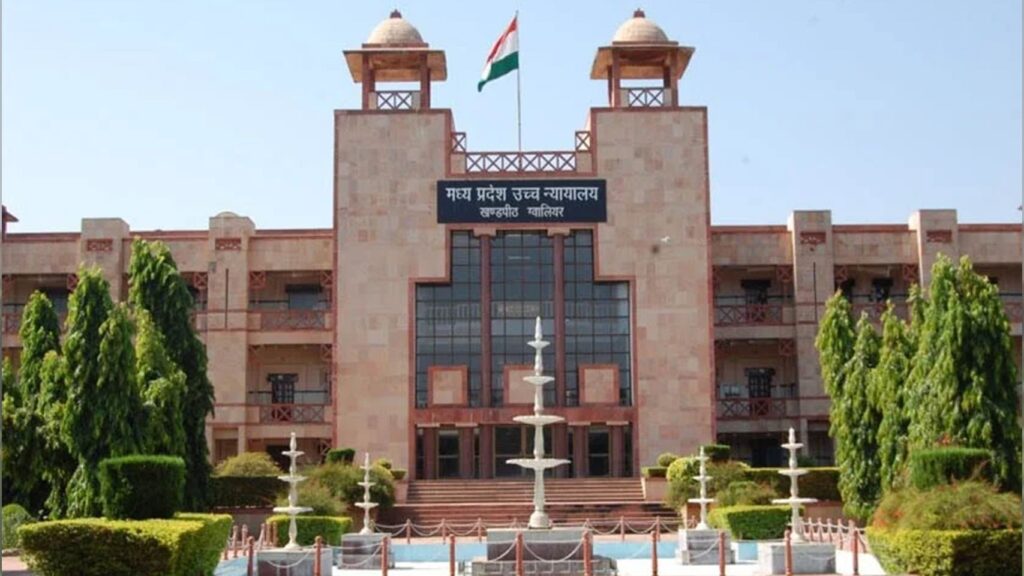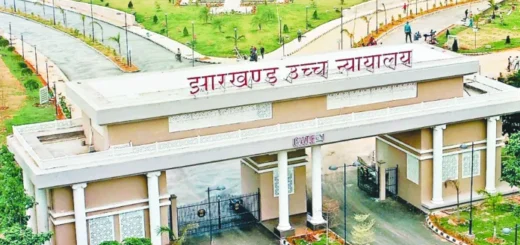The Madhya Pradesh High Court stated that the Internal Complaint Committee under the PoSH Act must try to resolve issues through conciliation. An inquiry based on service rules can only happen if conciliation does not succeed.

The Madhya Pradesh High Court overturned the suspension of an Assistant Professor from Maulana Azad National Institute of Technology. The court stated that according to Section 10 of The Sexual Harassment of Women at Workplace (Prevention, Prohibition and Redressal) Act, 2013, the Internal Complaint Committee must try to resolve issues through conciliation. The court added that an inquiry under Service Rules should only happen if the Committee cannot resolve the matter. The Assistant Professor sought the court’s help after being dismissed from his position in the Department of Materials and Metallurgical Engineering due to a departmental inquiry, which he claimed violated natural justice and legal procedures.
Justice Sanjay Dwivedi, in a Single-Judge Bench, remarked that the findings of the Enquiry Committee cannot be accepted solely based on the complaint and responses from the respondents. He noted that the written statements from witnesses provided by the petitioner were ignored. Senior Advocate Manoj Sharma represented the petitioner, while Advocate Yogesh Bhatnagar represented the respondents. The petitioner alleged that respondent no.3, the senior faculty member, had personal issues with him and had been targeting him since he joined the department. Despite not having lab space, the petitioner managed to secure a DST project worth about 46 lakhs.
The third respondent was said to be jealous and plotted against the petitioner with the help of his major project students. Later, respondent No. 3 claimed that two female students visited his office to report the petitioner’s behavior. The petitioner argued that instead of sending the issue to the Internal Complaint Committee (ICC), it was directed to respondent No. 4, who was a friend of his, leading to a conspiracy against him. The petitioner also stated that the complaints were not signed by any female students but were instead created by male students pretending to be the class representative, which they presented to the Director of the Institution.
On the other hand, the respondents argued that the petition was not valid under Section 29 of the National Institute of Technology Act, 2007. This section states that any disputes between an Institute and its employees should be referred to an Arbitration Tribunal if requested by either party. The Bench noted that Section 29 does not stop the petitioner from seeking a remedy under Article 226 of the Constitution of India, as it is up to the employee to choose whether to go to the Arbitration Tribunal. The records showed that the petitioner, as an employee, had not asked for the dispute to be sent to the Arbitration Tribunal, so he was free to file a petition under Article 226.
Reference was made to Section 10, which states that the Internal Committee or a Local Committee must first attempt to resolve the issue through conciliation before starting any inquiry, as outlined in Section 11 of the Act, 2013. The wording in this provision clearly indicates that the Committee is required to try to settle the matter through conciliation, and only if that fails should an inquiry proceed according to the Service Rules. The Bench confirmed that there was a complete violation of Sections 10 and 11 of the Act, 2013. Regarding the case facts, the Bench observed that even after instructing the respondents to provide the order-sheets of the inquiry, they did not demonstrate how or when the petitioner was given a chance to cross-examine the complainants. No evidence was presented to show whether the complainants’ statements were recorded during the inquiry. The Bench concluded that without any witness statements or an opportunity for cross-examination, the process followed by the respondents was not in accordance with the law.
The High Court noted that the respondents did not adhere to the principles of natural justice, which are necessary to prove the charges against the petitioner. The way the inquiry was carried out and the procedures used by the respondents were deemed unacceptable and against the law. Upon reviewing the inquiry order-sheets, the Bench found that the respondents failed to follow the procedures outlined in Rule 14 of the Central Civil Services (Classification, Control & Appeal) Rules, 1965. The Court stated that the inquiry was merely a formality, as it did not follow the required procedures. Witnesses did not appear in person before the Enquiry Officer, and the petitioner was not given a chance to cross-examine them. Therefore, the inquiry was considered invalid and violated the principles of natural justice. The Bench concluded that from the beginning, the respondents did not follow any proper procedures for the inquiry or comply with the 2013 Act. The petition was granted, and the suspension orders were overturned.
Cause Title: Dr. Kali Charna Sabat v. UOI Through National Institute of Technology & Others [Case No. WRIT PETITION No. 10021 of 2024]
Appearance:
Petitioner: Senior Advocate Manoj Sharma, Advocate Lavanya Verma
Respondents: Advocate Yogesh Bhatnagar









